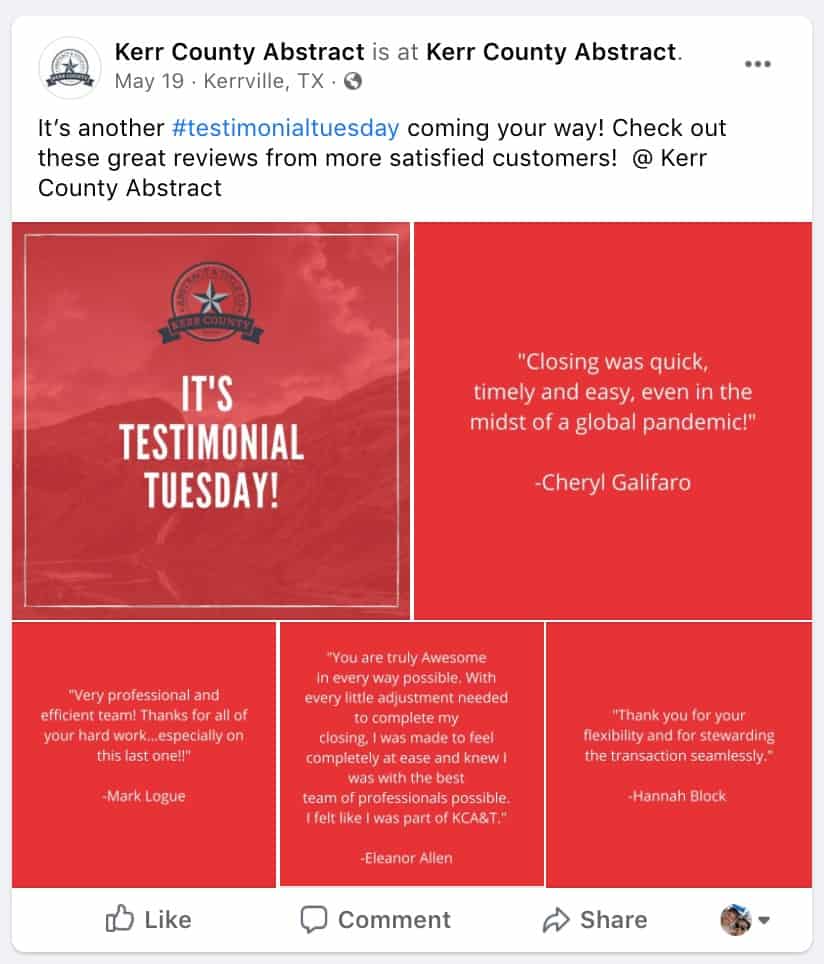Today’s legal market is notably more competitive and fast-paced than ever before. Relying on old marketing methods is no longer enough to carry your firm to the top. Nowadays, you need to craft a law firm marketing strategy that works as hard as you do and puts your firm in front of the right eyes, at the right time.
No matter the size of your firm or the services you provide, law firm digital marketing can help elevate your reputation, generate new leads, and attract new clients. You can broaden your scope by boosting your search engine ranking or build your authority by creating content that answers questions your clients didn’t even know they had. This is how law firms win in the digital age.
Why You Need Law Firm Digital Marketing
In the past, law firms turned to traditional tactics like print ads, billboards, and TV commercials to reach clients. While these methods can still work for specific demographics, most clients today learn about brands through digital means. Surveys show that 63% of all sales journeys nowadays begin online, even if the actual transaction takes place offline.
On top of this, at least 28% of all business activities are now conducted online, so relying solely on traditional media no longer cuts it. Law firms need to invest in digital marketing to meet prospects where they’re actively looking.
Marketing online provides a more effective and cost-efficient approach for law firms to be visible and keep their presence consistent. When potential clients research, they want to find a trusted advisor, and digital marketing for attorneys helps position you as just that.
Creating a Plan That Works for Your Law Firm Internet Marketing
A key component to developing an effective law firm marketing plan is to define your goals and the purpose of the strategy upfront. This means sitting down and asking the following crucial questions.
What are your goals?
A well-structured law firm marketing plan should reflect specific goals for a given period. These goals also dictate how to select the strategies you’ll use.
For example, your current goal is to drive brand awareness that broadens the scope of your reach and introduces more people to your firm. An effective strategy to implement would be a stronger social media push, aided by SEO-driven website content.
If your primary aim is to transform leads into retained clients, you may want to look into implementing PPC advertising and more consistent email marketing campaigns.
Who is your ideal client?
Before you can determine what type of marketing tactics will be the most effective, you need to understand who you will be marketing to. Creating a buyer persona can help you with this.
A buyer persona is a fictional profile of your ideal client based on market research and the information you have on your existing customers. Be sure to include demographics, motivations, goals, and behavior patterns.
To help you create your buyer persona, start by answering questions that map out what they’re like. How old are they? Where do they live? What is a problem they have that your firm could solve? Once you have a persona written down, you can gear your messaging and marketing efforts toward them.
How much should my law firm spend on marketing?
The legal sector typically spends 7 to 10% of revenue on marketing and business development initiatives. This percentage range seems to be the sweet spot for marketing spend. However, it certainly isn’t a hard and fast number that every firm should shoot for, especially since the general recommendation of most business advisors can run anywhere between 2 to 18%.
Finding out how much your law firm should be spending on marketing is a game of trial and error. You’ll have to experiment with different types of marketing and budgets to find your own sweet spot that brings in a sufficient amount of new clients.
6 Law Firm Marketing Strategies to Use
The beauty of digital marketing is that there’s a wide variety of channels and strategies you can use. To make the most of this flexibility, it helps to start with a few targeted tactics within your budget to find what works best for your firm.

1. SEO
A well-designed website is only useful if potential clients can find it. Search engine optimization (SEO) makes your firm visible in search results when people look for legal services like yours. The higher your web pages rank in search engine results, the more likely they are to get traffic and views.
For example, you are an attorney specializing in child custody cases, and you’ve determined that your ideal client lives in Asheville, North Carolina. To reach this specific demographic, you’ll need to optimize your website.
One common way to do this is by incorporating SEO-driven keywords into your web pages. These keywords should be terms that your ideal client will likely type into a search engine when they need your services. Possible search terms include “Ashville family lawyer,” “Ashville NC child custody law firm,” or even “child custody help near me.”
Make sure you give your visitors valuable information and don’t just stuff your page with as many keywords as possible. Keyword overstuffing can cause search engines to rank your web pages lower, as they’ll flag your website as suspicious.
2. Social media
According to GlobalWebIndex, 71% of consumers refer to social media for deciding on a purchase. This makes social media platforms an important space for running your law firm’s digital marketing campaigns, both organic and paid.
With a strong social media presence, you can make your firm more relevant to your target audience, build your community up, and give clients a reason to trust you. Achieve this by creating a consistent social media calendar that focuses on sharing valuable content.
Having a social media strategy doesn’t mean having a presence on every social platform. In fact, in some cases, you can land new clients without even having a social media account. Start with one or two platforms where your clients are most active, and focus on growing your audience there.
Remember, social media allows you to directly communicate with your prospects. Use this to your advantage and let your audience know that your firm has real people genuinely interested in helping.
If you use Facebook, search for posts in relevant groups pertaining to your area of expertise. If you see someone asking for legal advice in your practice area, you can offer an informative response or let them know you’re happy to discuss their question in a free consultation or private message.
Drive Better Engagement Across Any Social Platform
TitleTap helps law firms and legal professionals build social media strategies that touch on organic and paid campaigns, allowing our clients to enjoy both broader and targeted coverage.
3. Content Marketing
Content marketing allows you to share your expertise and be seen as a leader in your niche. Through high-quality blog posts, you can educate clients on complex legal topics and establish your credibility while keeping your website fresh for SEO. Beyond this, content marketing can also drive new leads to your law firm and deepen relationships with your existing clients.
You can also explore more interactive forms of content, such as downloadable white papers, ebooks, webinars, or quizzes. These add value to your audience and make prospective clients feel informed and confident in choosing you. Experiment with different tactics, but be sure that the content you produce is timely, educational, and tailored to your target client.
4. Online Reviews and Reputation Management
Potential clients are reading reviews before they ever reach out. Whether on Google, social media, your website, or directories like Yelp, you can expect them to consult testimonials from past or current clients that give them a sense of what others’ experience was working with you.
Your job is to manage your reputation actively. While it’s always nice to see a glowing review, people are more likely to leave reviews when their experience is negative. To help ensure you get plenty of positive reviews, encourage your clients in person or via email to leave a review if they had a good experience. Then, take time to thank the person who wrote it, personalizing your responses to positive reviews, if possible.
And it’s even more crucial that you promptly respond to dissatisfied clients. A negative review, if handled poorly, can drive business away, so handle any complaints with professionalism and tact. Avoid arguing with clients over the internet. Simply apologize for the subpar experience and offer to make it right, asking them to contact you to discuss their experience. When you show prospective clients that you value feedback, they see you as an accountable, responsive partner they can trust with their legal needs.
5. Email Marketing
Email direct marketing (EDM) is a direct line to clients and prospects alike, so don’t neglect this approach. If done right, it can be a powerful way to keep your firm in their minds, whether they require legal services now or later.
A monthly newsletter filled with legal tips or law changes keeps your audience informed and establishes your credibility in the field, all while reminding them that you’re ready to help. Remember that emails should read as a means to build relationships, not pitch your services.
6. PPC Advertising
Pay-per-click (PPC) advertising is exactly what it sounds like. It’s a digital advertising model where you pay each time a user clicks on your ad. There are multiple types of PPC, but the most common is paid search ads on Google.
How this works is that you bid competitively on a keyword of your choice, such as “litigation lawyer in Chicago.” If someone were to search for that exact keyword, your website would show up at the top of the page with paid search results. Paid search ads are ideal for reaching prospective clients who already intend to make a purchase or, in your case, hire a lawyer soon.
Display advertising is another type of PPC. This includes banner ads, which are commonly used to entice new leads into learning more about a service or product, and remarketing ads, which are geared towards re-engaging viewers who previously showed interest in your brand. For example, say that the same person searching for a commercial law attorney stopped looking for a law firm and started looking for recipes to make for dinner. On a cooking blog, they would likely see an ad pop up for a commercial law firm. The ad essentially follows them, and the law firm would pay for the click if they were to follow it.
PPC can be customized to target specific search terms and keywords, set criteria, and can be capped. This means you set a budget so your ad stops being displayed if you’ve already paid the maximum amount you want for the clicks. Because of this, it’s easy to budget for PPC ads and work them into your marketing plan.
Reach Your Ideal Client Through Digital Advertising
Work with TitleTap and have remarketing ads, Facebook ads, or Google ads expertly set up so you can generate qualified, guaranteed traffic quickly.
Measuring Your Law Firm Marketing Performance: 3 Metrics to Track
It can be difficult to gauge the success of your digital marketing efforts if you aren’t tracking the results. Here are 3 key metrics commonly used to track the performance of law firm marketing strategies.
Top Referring Sources
How are people hearing about you? Check where the initial point of contact came from. Whether someone found you through a PPC ad or a Facebook post, it’s important to know exactly where leads come from so you can see which tactics are working best for your firm. This will help you determine if you need to adjust your strategy.
Average Sales Cycle
How long does it take for someone to go from being a new lead to actually engaging as a prospective client, such as calling your office or signing up for a consultation?
This is vital information to assess, as you’d have a better grasp of what to expect when it comes to engaging and converting leads. For instance, a lead could sign up for your newsletter and after a few emails, they respond to a specific email that discusses child support options. The email containing child support information would be what converted the lead, not the newsletter sign-up form.
Return on Investment
Marketing efforts should do more than generate leads. They should be profitable, and one way to determine whether they are is by tracking your return on investment (ROI). Analyze the cost of acquiring the lead with the resulting revenue. This will help you determine the effectiveness of specific tactics and whether any changes need to be made.
Achieve Effective Marketing for Attorneys with TitleTap
Knowing the importance of marketing for attorneys is only half the challenge. Effective law firm digital marketing requires a partner who understands your goals and knows how to bring in results. Let TitleTap be that partner.
TitleTap supports law firms and legal professionals by providing digital marketing tools and services that can help you boost your growth. Aside from our comprehensive law firm marketing plan, TitleTap also offers expertise in website design and development that fully caters to the requirements of law firms and title companies.

It’s Time to Make Your Firm the First Choice Clients See
With TitleTap, you can manage your online reputation more effectively, create video content and articles that convert, and integrate your EDM campaigns seamlessly with top marketing platforms. Learn how you can transform your law firm’s digital marketing.

